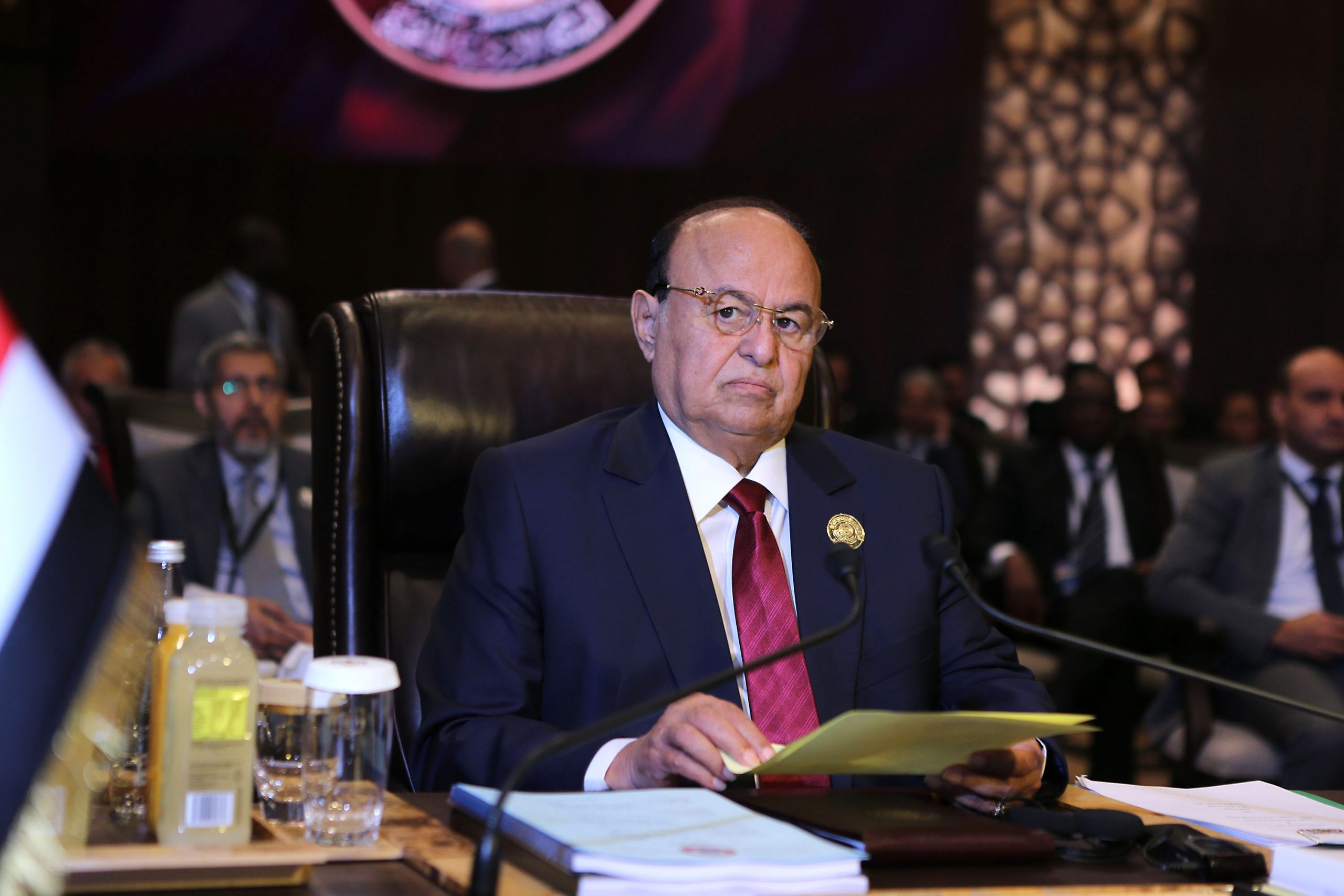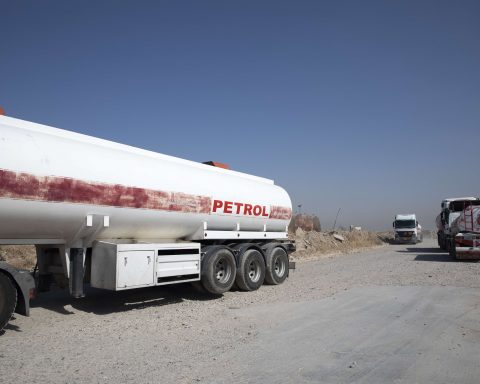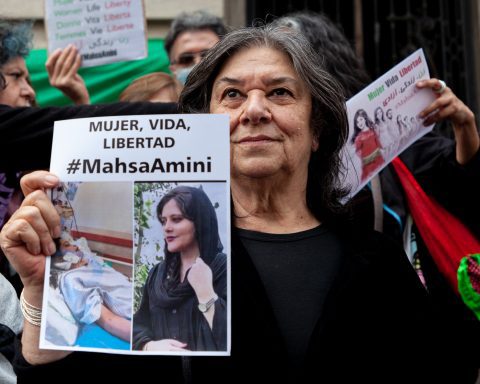On April 7, Yemen’s President Abdrabbuh Mansour Hadi announced that he would be handing over his powers to a newly-formed ‘Presidential Council’ in what amounts to one of the biggest developments since the war began more than seven years ago.
The announcement came during consultations that were being held in Riyadh between Yemen’s various parties, and surprised many Yemenis, including those present at the consultations. This has led to speculation that the Presidential Council was engineered by Saudi Arabia and the UAE and then imposed on the Yemenis under the cover of the consultations.
Both Saudi Arabia and the UAE have had misgivings over the composition of Hadi’s government, and its ineffectiveness. The influence of Al-Islah, who are considered part of the wider Muslim Brotherhood, has been a significant source of tension between President Hadi and the UAE. In this context, the dismissal of veteran Vice-President and senior Al-Islah figure, Ali Mohsen al-Ahmar has added to the speculation that the Presidential Council was more of a Saudi and UAE affair rather than Yemen’s.
Nevertheless, even among Saudi and Emirati detractors, there is a general consensus that Hadi’s government has been impotent and ineffective for much of the conflict. Hadi has been unable to impose himself on the competing factions, and has been unable to deliver effective policy that might bolster the resistance against the Houthis’ seventh attempt at hegemony over the country. Hadi has even been unable to engineer a return for himself and his government to Yemen, even in areas that are under government control.
Composition of the Presidential Council
The Council is to be led by Rashad Al-Alimi, a former interior minister who also held a number of security and intelligence positions between 2000 and 2011 under the government of long-time strongman Ali Abdullah Saleh, who was ousted during the Arab Spring protests.
Alimi is believed to have good ties with Saudi Arabia and the US, and has often been consulted by the US Special Envoy, Tim Lenderking, who is still in the process of trying to establish a credible framework for negotiations.
While Hadi has a long military history himself, his influence over the security establishment has always been limited. Al-Alimi, however, is believed to have greater influence, and therefore, is expected to be able to exert the necessary control and power that eluded his predecessor.
Along with the chair, the Presidential Council is also composed of seven other ‘deputy chairs’ whose composition ostensibly seeks to strike a balance between the different powers and regions. The council is split evenly between the north and south, and includes the leader of the Southern Separatists, Aidrous Al-Zubeidi, Tareq Saleh, who is the nephew of former president Ali Abdullah Saleh, and the governor of the resource-rich province of Ma’rib, Sheikh Sultan al-Arada.
In terms of power dynamics, the council appears to strike a balance between the competing factions. The separatists are represented by Aidrous Al-Zubeidi. Al-Islah is represented by Abdullah al-Alimi Bawazeer and Al-Arada. Elements of the Ali Abdullah Saleh regime that continue to command influence in the security and military apparatus are represented by Tareq Saleh. The Salafist groups, whose militias were effective in ruining Houthi attempts to seize Ma’rib, are represented by Abdulrahman Al-Muharrami. The two important provinces of Ma’rib and Hadhramout are represented by their respective governors, who are included as members of the eight-man presidential council.
However, it is the details of the workings of this council that lends fuel to speculation that the new body has been designed and engineered to amplify the influence over the UAE and curtail that of Al-Islah.
In the absence of a consensus among the members, decisions will be taken by a simple majority vote. Al-Zubeidi, Saleh, Al-Muharrami, and Al-Bahsani, the governor of Hadhramout, are all considered closely allied with the UAE; and, by extension, Saudi Arabia. In other words, although Al-Islah is represented, they have effectively been rendered powerless in future decision-making.
Houthis
The Houthis did not attend the consultations in Riyadh, citing their objection to meeting in the Saudi capital and asserting that the venue should be changed to a more neutral location. They have also long insisted that they refuse to negotiate with Hadi because he has no power to implement any agreement.
Yet, the Houthis are unlikely to be interested in the new Presidential Council. For the Houthis, the broken truce is more important. The truce, which was announced on April 1 by UN envoy Hans Grundberg, promises to see an easing of the blockade on the port city of Hodeidah and the airport in Sanaa. Under the terms of the truce, 18 shipments of fuel will be allowed to enter Hodeidah, and flight routes to Cairo and Amman will be permitted.
The Houthis have suffered a major setback in the military bid to seize the resource-rich city of Ma’rib and believe that the truce offers an opportunity to regroup for another potential offensive.














